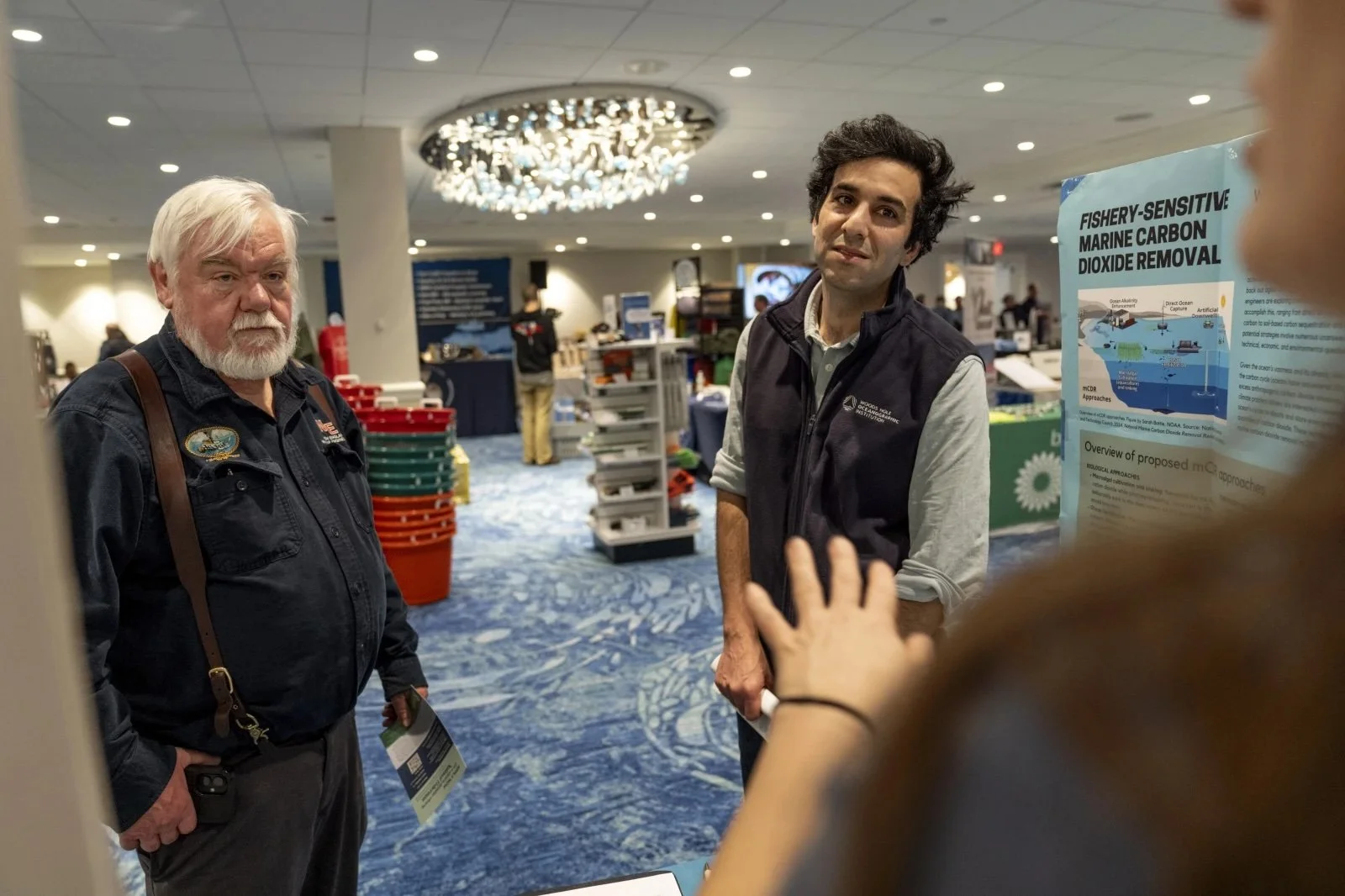Ocean dumping – or a climate solution? A growing industry bets on the ocean to capture carbon
Adam Subhas, right, a scientist with the Woods Hole Oceanographic Institution, speaks about an ocean carbon project at the Massachusetts Lobstermen’s Association Annual Weekend and Trade Show, Friday, Jan. 31, 2025, in Hyannis, Mass. (AP Photo/David Goldman)
By Helen Wieffering (AP)
This is an expert from an article published by AP. Read the full article here.
Fishing communities have opposed another climate project led by Subhas of the Woods Hole research center that has generated 10 months of conversation and debate.
The project as proposed last spring would have poured 66,000 gallons of sodium hydroxide solution into ocean waters near Cape Cod. Woods Hole later proposed downsizing the project to use less than 17,000 gallons of the chemical, with federal approval still pending.
In two separate reviews, the Environmental Protection Agency said it believes the project’s scientific merit outweighs the environmental risks, and noted it doesn’t foresee “unacceptable impacts” on water quality or fishing.
But fifth-generation fisherman Jerry Leeman III wants to know what will happen to the lobster, pollock and flounder eggs that float in the water column and on the ocean surface if they are suddenly doused with the harsh chemical.
“Are you telling all the fishermen not to fish in this area while you’re doing this project? And who compensates these individuals for displacing everybody?” he said.
Subhas’ team expects the chemical’s most potent concentrations to last for less than two minutes in the ocean before it’s diluted. They’ve also agreed to delay or relocate the project if schools of fish or patches of fish eggs are visible in the surrounding waters.
Sarah Schumann, who fishes commercially for bluefish in Rhode Island and leads a campaign for “fishery friendly” climate action, said after attending four listening sessions she’s still unsure how to balance her support for the research with the apprehension she hears in the fishing community.
“If I was actually trying to decide where I land on this issue, I’d be twisted in knots,” she said.

